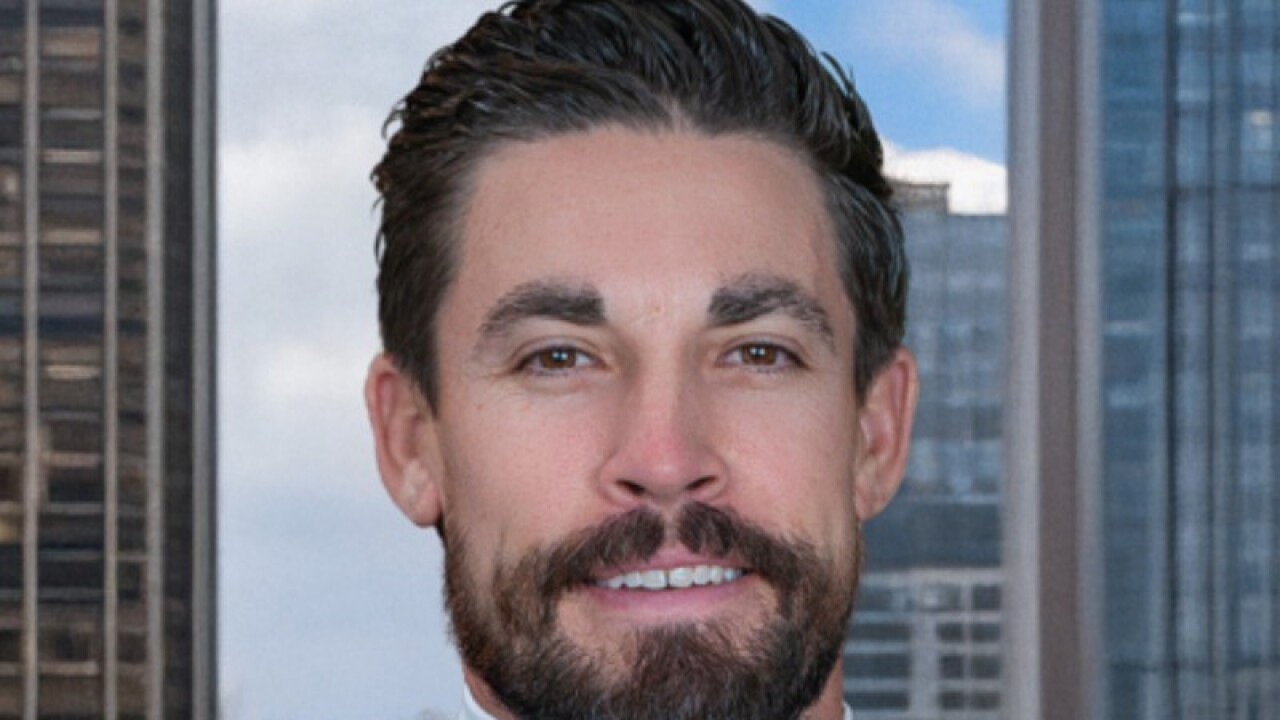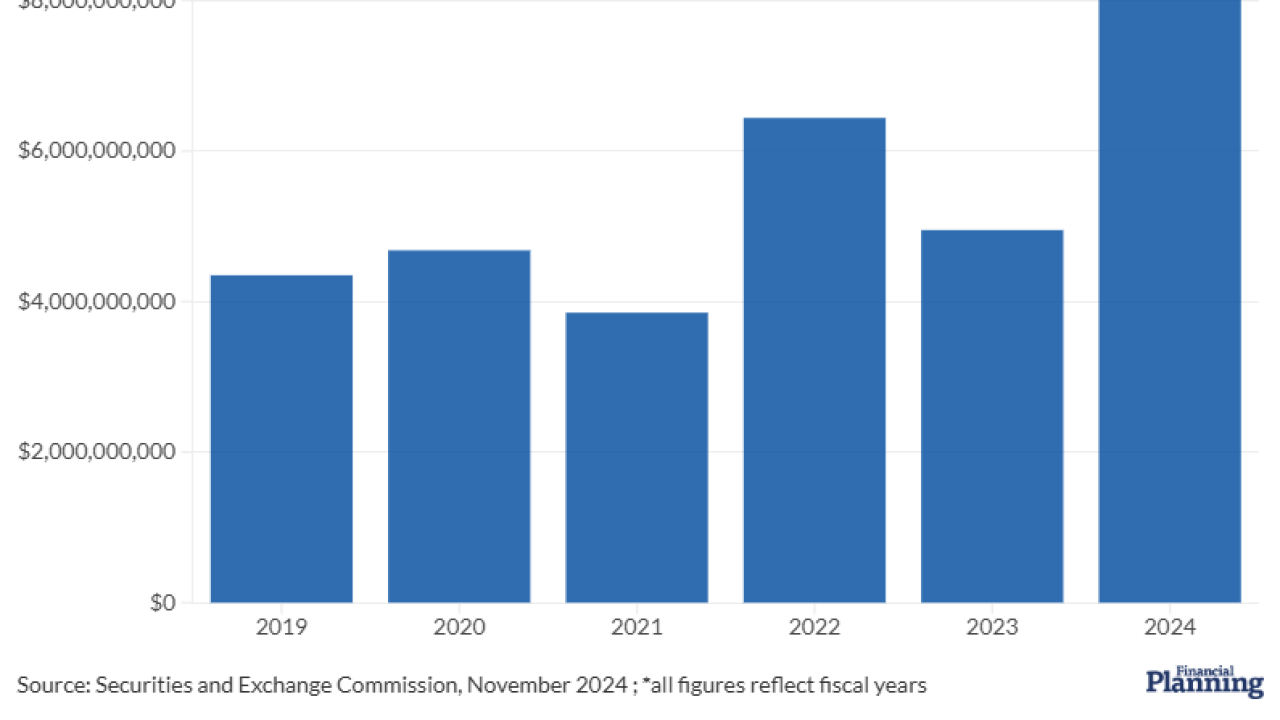While President Bush's nominee to replace outgoing SEC Chairman William Donaldson is likely to bring a free-market, libertarian spirit to the post, don't expect him to charge in like a bull in a china shop.
The selection of Rep. Christopher Cox, (R-Calif.), a lawyer by trade and an outsider to the securities industry, signals a shifting of the sands at the agency in the aftermath of arguably the most prolific reform era in its history.
Donaldson, a savvy businessman and industry veteran, deftly coordinated a series of targeted policy reforms, including an enhanced focus on corporate governance and improved disclosure of financial information, on the heels of a wave of corporate scandals.
Cox, who is expected to be confirmed by the Senate Banking Committee before Congress recesses for the summer, has championed repealing the estate tax, the capital gains tax on savings and investment, and taxes on dividends during his 20 years as an elected official. He is viewed by many in the financial services industry as being pro-business and in favor of less stringent regulation.
Cox, a conservative, sponsored the Private Securities Litigation Reform Act of 1995, which, after passing over then-President Bill Clinton's veto, made it tougher to file securities class-action lawsuits in state courts.
Tort reform is a high priority for the Bush administration, and Cox's nomination appears consistent with the president's agenda.
Some Airing Out'
While it is difficult to predict what his potential term as chairman will portend for the mutual fund industry, many are breathing a sigh of relief after an onslaught of new regulatory requirements.
"It's refreshing to see someone who doesn't have ties to the securities industry running the regulator," said Louis Harvey, president of the Boston-based research firm Dalbar. "That's absolutely terrific news for the industry because we do need some airing out."
Despite his penchant for limited government and loose regulation, some industry insiders say that Cox is not likely to overhaul the spate of new reforms that have come down the pike under Donaldson's leadership.
"There's always great hope that a new chairman will repeal unpopular and controversial rules, [but] they seldom do," said Cindy Fornelli, senior vice president, compliance executive for securities regulation and conflicts management, at Bank of America.
As a case in point, she recalled when many on Wall Street expected former SEC chairman Harvey Pitt to repeal Regulation Fair Disclosure, the rule that requires companies to make public material information at the same time it is distributed to research analysts. Alas, it never happened.
Reform Beat Goes On
"You saw quite a bit of reform under Donaldson. A lot of issues were put to bed," said Don Cassidy, senior analyst at fund tracking firm Lipper of New York. "But I don't find it credible that we'll see reform come to a screeching halt."
Two reforms that were particularly controversial during Donaldson's tenure were the rule requiring mutual funds to have an independent chairman and the hedge fund registration rule. In each case, Donaldson was the deciding vote in a 3-2 decision that saw fellow Republican Commissioners Cynthia Glassman and Paul Atkins butting heads with the chairman.
"There may be some rethinking of [the rules,]" said David Ruder, a former SEC chairman and professor of law at Northwestern University. "[But] the reasons that led the Commission to adopting those rules are quite real. Once [Cox] understands the potential for conflicts of interest in that industry, he will want to go quite slowly in reversing protections that have already been adopted." He added that much will depend on the outcome of the U.S. Chamber of Commerce case.
The new SEC chairman will "probably lay low on those ones," Lipper's Cassidy said, noting that any attempt by Cox to repeal the independent chair and hedge fund registration rules would result in "a lot of flack and resistance."
Shifting Balance of Power
Still, Donaldson's departure at the end of the month, coupled with Democratic Commissioner Harvey Goldschmid's plans to step down this summer, shifts the balance of power at the Commission and creates an enormous opportunity for Cox to leverage his own brand of regulation. Donaldson and Goldschmid played an integral role in pushing through the reforms that have come to pass in the last two years.
Fornelli, former deputy director of the SEC's Division of Investment Management, anticipates that Cox will focus on sending a message to the investment community that the markets and the economy are stronger, abuses have been cleaned up, reforms have been implemented and that it is now time to get back to basics.
A few of the "bread and butter" issues she believes that will garner Cox's attention include modernizing the accounting and recordkeeping rules under the Investment Advisor's Act and adopting an amended version of Part II of Form ADV, which contains important information on an advisor's services, fees and investment strategies.
Other members of the industry have said that Cox will focus more on providing relief for small, publicly held businesses from Sarbanes-Oxley and proposals to streamline the securities offering process.
In terms of staffing, the change in leadership will not prompt a massive turnover at the Commission, but it is likely there will be some changes on the margin. Some observers expect Cox to tap his own group of folks to head up a few of the agency's divisions, particularly investment management, which was left vacant following the departure of Paul Roye in March.
On the Way Out
Recent chatter suggests that Giovanni Prezioso, the SEC's general counsel, and Allan Beller, director of corporation finance could be on their way out once Cox takes office.
William Galvin, secretary of the commonwealth of Massachusetts and a key player in the mutual fund investigation who has held firm on requiring firms to acknowledge wrongdoing in their settlements, told Congress last week that he is concerned that Bush's nomination of Cox as chairman and other anticipated vacancies at the Commission will put an end to a period of "reform and vigorous enforcement."
At this point, only time will tell.
(c) 2005 Money Management Executive and SourceMedia, Inc. All Rights Reserved.
http://www.mmexecutive.com http://www.sourcemedia.com





